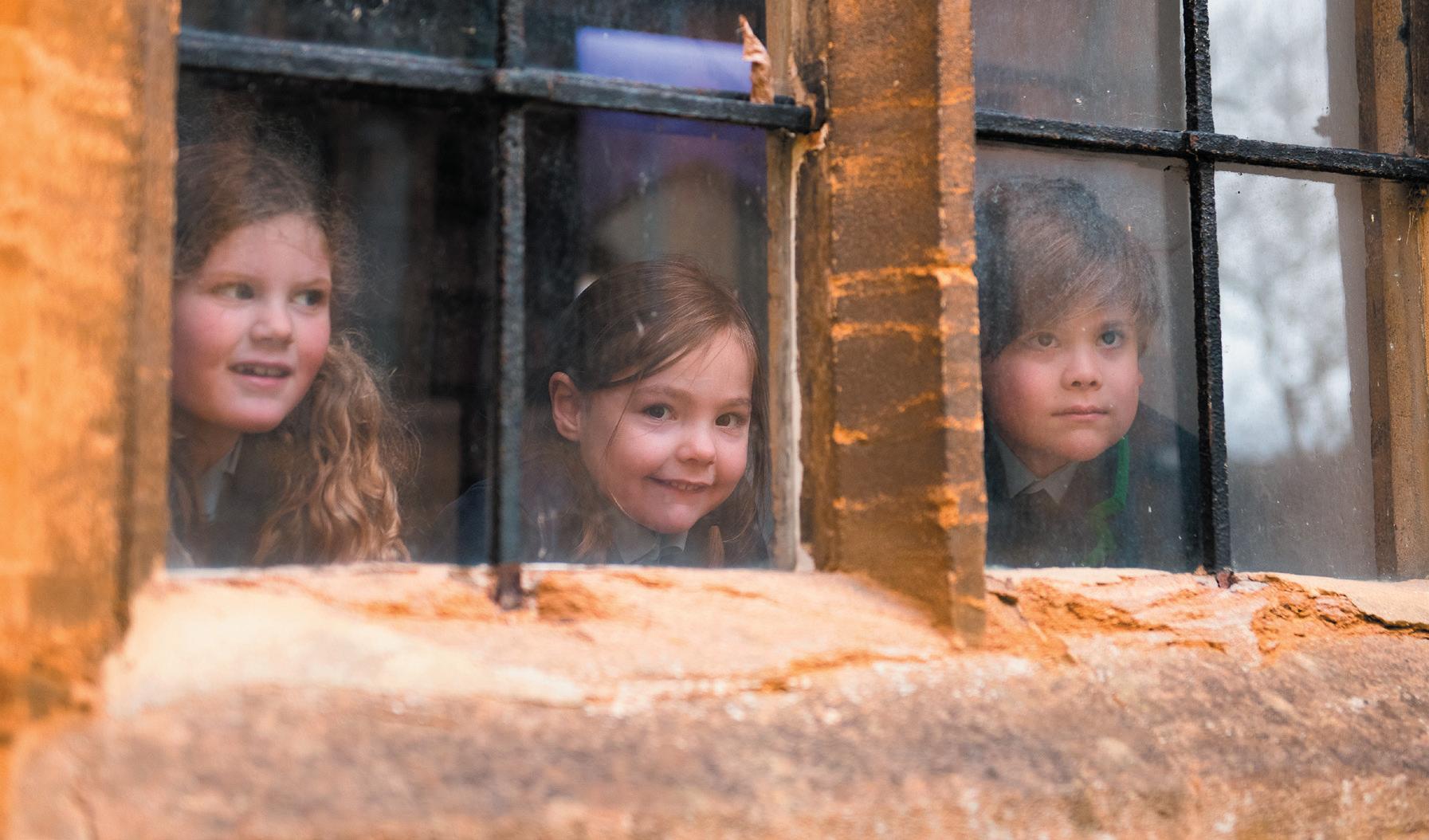
4 minute read
5 Top Trends in Schools
From diversity of learning and flexible communication to life skills and pastoral care in today’s fast-paced world – Natalie Bone reveals all.
Diversity of learning
Advertisement
Children today have a vast array of engaging and exciting entertainments that compete for their attention, impacting on the nature of their approach to learning and their ability to concentrate and focus. Many children find it difficult to sit through an entire film, programme or conversation, often choosing short, high impact, highly visual media to watch such as Tik Tok, YouTube clips or games. Teachers need to increasingly focus on the experience the child receives and be ever more creative to capture and hold their attention.
Teachers also need a wide repertoire of delivery and activities to suit different learning styles such as auditory, visual and kinaesthetic/doing and allow for a rich tapestry of ability; guiding children to persevere and achieve their goals – however small they seem. Allowing children to discover facts, procedures, and insights for themselves also often brings incredible and insightful contributions and a new dimension of vibrancy – a huge motivator for learning success.
Trying new things without fear grows resilience and creativity, and to learn how to fail is vital; we focus so much on succeeding that children get the wrong message – we actually learn more from our failures than our successes and children need to see that mistakes are learning opportunities.
Removing the general stigma associated with purely academic ability emphasises a deeper respect for celebrating individual strengths
and talents, and normalises the challenges associated with having to work a little harder in some areas than others.
Investing in this acceptance keeps children grounded with a respect of all abilities, without judgement, throughout the whole of their lives.
Connection
It is important that children are aware of what is going on around them and of themselves. Part of any child’s self-assessment toolbox is to be able to effectively work with others and have the opportunity to reflect on how valuable a skill this is; facilitating the opportunity to bounce ideas around enables really good discussion and dialogue.
Layered support is important; having a dedicated adult whom they can speak to, but also knowing that they are valued and cared about by several people. If children feel safe, happy, nourished and secure then they are going to make the best progress possible. Form teachers are vital: they have connections with the children every day and they are their first port of call. They oversee the pastoral and academic progress of each child and because of this they flourish.
Flexible communication
Parents are busier than ever and when you have a lot of information to send out, as schools do, you must look at ways to streamline that information to make communications efficient and easily accessible. But it is not just about information sharing, it is about reassurance and care with a personal touch. Having daily and weekly dialogue with parents allows teachers to be responsive to parent’ needs and requirements – and not just within school hours.
Pastoral care in our modern world
Healthy technology use is very much about discussing our relationship with it. Children need to know how to use it as a tool and feel safe and it is about balance and this goes for every relationship we might develop such as exercise, food, friendships etc.
E-safety is e-motional safety. Some children are really tech savvy, but if they cannot cope emotionally with the volume of information, or content they are processing, then we need to allow for greater awareness and understanding and give children the chance to discuss this objectively. They’re still little children, despite greater technology exposure and inevitable desensitisation.
Life skills
To grow into loving adults, children need to feel loved. They need to learn how to show and understand their emotions and the emotions of others to self-regulate as they grow up. A school’s core values, like kindness, perseverance, awareness, generosity, honesty and independence, which become their foundations for the future, make it very easy for our children to see this in action.
Real conversations with eye contact from birth develops the basis for literacy. Having stories read to them teaches them so much about grammar and rhythm, and a love of stories leads very naturally into a love of reading. However, children need to see their adults reading to know that it is valued.
Children also need be taught how to take care of themselves and make time to relax. Our lives are far too frenetic and if children have only this modelled by parents, they often also fill their time with activity and not make room for wellbeing and much needed neutral head space. In the same way exercising regularly and eating healthily is fundamental for future health of body and mind.
Natalie Bone written for Muddy Stilettos










